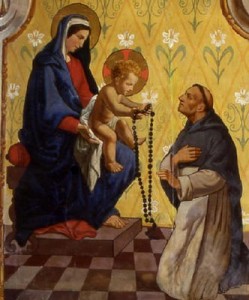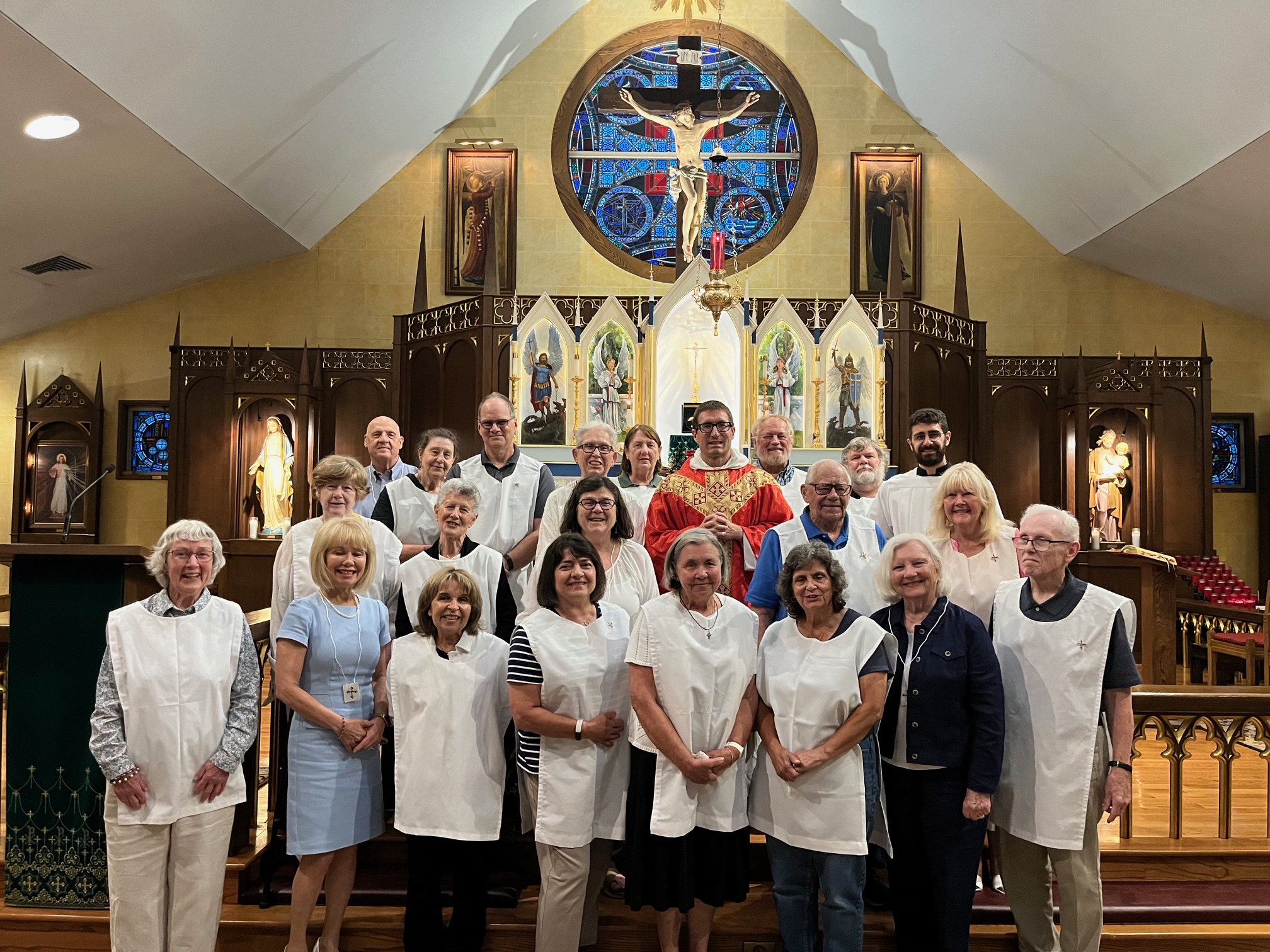"The grace is in the struggle"
Welcome to the Mother of Mercy Dominican Lay Fraternity located in Tiverton, RI, USA.

The laity recognized the Friar's holiness and understood how these friars could affect their own spirituality. The Friars also preached in the vernacular, which formed a dialogue between the preacher and his lay audience. The lay audience would often promote these preachers among each other and to those interested in learning the truths of the faith and supported the Friars in their preaching and study. This allowed them to strengthen each other with shared values. The support was not only monetary, but in their everyday needs. As the attraction grew, the laity formed communities (third order chapters) around the Dominican monasteries.
The laity were connected to the Friars and flourished for 70 years before a rule was codified in 1285 to guide their daily prayer life. The Third Order is not part of the Dominican Order because of a Rule or because they have studied Dominican works, but because they are moved to their very core by the preaching of Dominican Priests, support them and live a Dominican spirit.
This continues today, as the Dominican Laity looks to the friars still, for informed preaching, and a life of prayer and study, to call out heresy and unsound doctrine. The laity, for their part, continue their vocation to support the Friars and witness to others. Today, in addition to these learned priests of the order, the laity has 800 years of Dominican saints, their lives and their writings, to study and exemplify.
Finally and foremost, the Rosary remains as it did 800 years ago, a central cornerstone of both the laity and the Friars. Histories of the Holy Rosary often attribute its origin to St. Dominic himself through the Virgin Mary. Our Lady of the Rosary is the title related to the Marian apparition to Dominic in 1208 in the church of Prouille in which the Virgin Mary gave the Rosary to him. For centuries, Dominican Friars and Laity have been instrumental in spreading the rosary and emphasizing the Catholic belief in the power of the rosary.
If you have an interest in Dominican Laity or Dominican life please have a look at this exceptional pamphlet by Fr John Rubba, O.P.
The Third Order of Saint Dominic (Read or download .pdf here)
It describes the Dominican Laity and third order vocation, its history, life and goals. Its' insights are extrodinary and to the point. It should answer all questions you may have on Lay Fraternities.
How To Become A Lay Dominican
If you find no meeting locations in your area, please email here for more information: Email here for other options
Overview
The Order of Preachers, more commonly known as the Dominican Order or Dominicans, is a Roman Catholic religious order founded by the Spanish priest Saint Dominic de Guzman in France and approved by Pope Honorius III on 22 December 1216. Membership in this order includes friars, nuns, active sisters, and lay or secular Dominicans. Founded to preach the Gospel and to combat heresy, the order is famed for its intellectual tradition, having produced many leading theologians and philosophers. By the year 2013 there were 6,058 Dominican friars, including 4,470 priests. The Dominican Order covers many continents, many centers of learning, many ministries, and claims over 500 canonized saints including St Thomas Aquinas and St Catherine of Siena and 800 years of history. The Dominican Order is one of only a few orders which have laity as full members of the order. The Dominican laity was officially founded by Saint Dominic himself and has existed formally since 1285. Members of the Dominican Laity are people who desire to grow in holiness in their daily lives without entering monastic life. As laity we remain in the world single or married yet are full members of the Dominican Order, contributing and receiving the graces of such a commitment. As laity we hold different jobs, and come from different backgrounds but share a common goal to grow in holiness. We support the magisterium of the church and have a particular devotion to Mary the Mother of God. It is said that the Blessed Virgin gave the rosary to St. Dominic.
Being a lay Dominican means being oneself in the way of life that defines the order. This way of life or charism, is one of prayer, study, apostolic activity and community. These are the four pillars of Dominican spirituality. We strive to integrate this charism and these pillars into our normal life. Our prayer is reflected in our recitation of the Rosary and the Liturgy of the hours. Our study takes the form of reading and shared studies within the monthly meeting. Our apostolic activity takes the form of preaching both by an example of our own life and extending that to others in almost every conceivable way and to the issues of everyday life as we are called to do in Christifideles Laici. Finally our community life is centered around monthly meetings of prayer, study and fellowship. These guiding principles for life as a lay Dominican are set forth in a Rule or Fundamental Constitution which has existed since the year 1285. Laity members strive to live by these principles, which of course are not binding under pain of sin. Perspective members must be 18 years old and a practicing Catholic. Membership includes progressing through four stages of formation. After one year of membership a candidate is received and becomes a full member of the order. This continues through two more stages taking four additional years at which time an individual is eligible to become a life professed member of the Dominican Order. Dominicans have a great devotion to our dead and one of the great consolations of being a Dominican is knowing that your brothers and sisters will pray for you continually after you die.
There are over 80,000 lay Dominicans worldwide.
